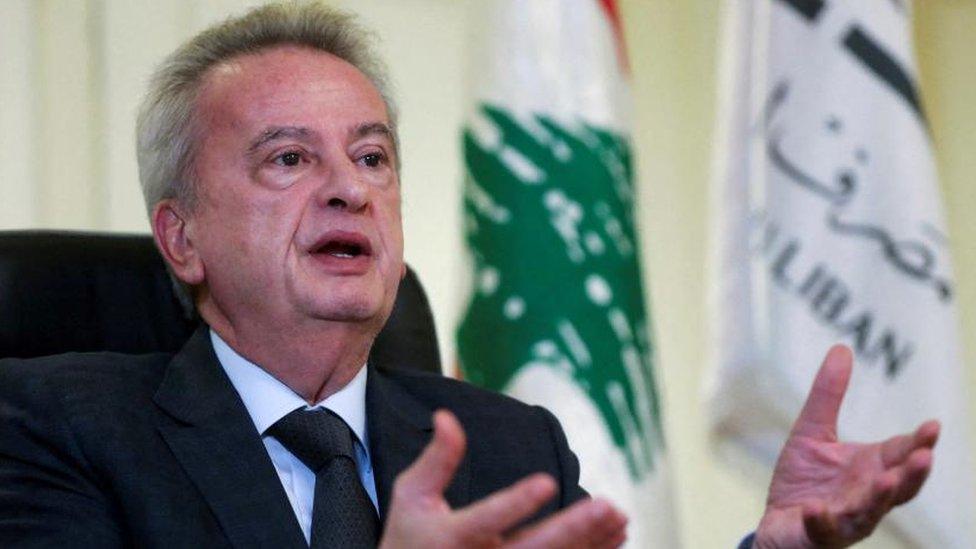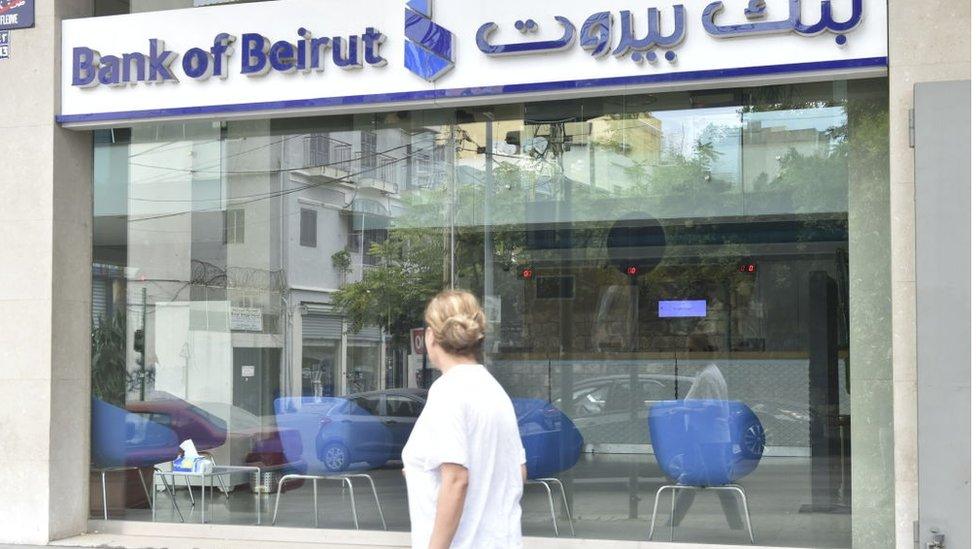Riad Salameh: Lebanon's tainted central bank chief steps down
- Published

Riad Salameh is blamed for mismanaging Lebanon's economy
Lebanon's central bank chief has stepped down as planned after 30 years, leaving the country facing an almost total collapse of its economy.
Riad Salameh is widely blamed for a crisis which has seen soaring inflation and the currency lose 98% of its value.
Once respected for helping the economy recover after Lebanon's civil war, he is now being investigated for embezzlement in several countries.
His deputy, Wassim Mansouri, will take over as interim head of the bank.
Lebanon's caretaker government has failed to appoint a permanent successor.
Mr Salameh was appointed governor of Lebanon's central bank in 1993, and was initially credited with bringing stability to the economy.
But in recent years he has - along with Lebanon's political class - been accused of large-scale financial mismanagement.
His policy of borrowing new money to pay existing creditors has been compared to a Ponzi scheme - an accusation he denies.
The current financial crisis began in 2019 when the value of the Lebanese pound plummeted and inflation soared.
Since then, the country has been in the midst of one of the world's most prolonged and acute economic crises, with more than 80% of the population living in poverty.
Bank withdrawals of hard currency are limited, meaning people are blocked from accessing their savings.
Such is the desperation, that some have resorted to holding up banks in an attempt to get their hands on their own money.
Mr Salameh also faces several criminal probes.
He is being investigated by at least seven countries, including Lebanon, for embezzlement and illicit enrichment. It is claimed he laundered more than $300m (£229m). He says he did not.
"I have presented audited statements on my personal accounts showing that all my wealth is from my personal work that I did for 20 years in the private sector," he told the BBC in a recent interview.
France and Germany have seized some of his assets and issued arrest warrants for him.
In a news conference on Monday, the central bank's new interim governor, Wassim Mansouri, said the bank would impose restrictions on when to lend to the government.
He also called on the government to make reforms, calling it Lebanon's "last chance" to make changes.
Related topics
- Published21 September 2022
